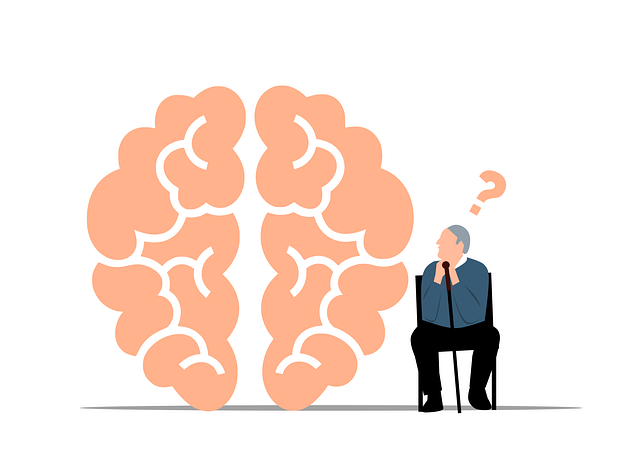Mental health evaluations are comprehensive processes that utilize clinical interviews, psychological tests, and data analysis to assess thoughts, emotions, behaviors, and overall functioning. These evaluations, crucial for effective therapy, inform tailored treatment plans and improve mental health outcomes. Data-driven insights from large datasets enable professionals to identify trends, develop targeted interventions, and promote early mental health support through public awareness campaigns. By translating evaluation data into actionable strategies, therapists design personalized treatment approaches incorporating mindfulness, self-care, and evidence-based techniques for improved mental wellness.
Mental health data analysis has emerged as a powerful tool in understanding and treating various conditions. This article delves into crucial aspects of mental health evaluations, exploring how data analysis reveals hidden patterns and informs evidence-based decisions. We examine the process of interpreting results and transforming insights into actionable strategies for enhancing therapy. By leveraging data, mental health professionals can tailor treatments, improve patient outcomes, and navigate the complex landscape of mental wellness effectively.
- Understanding Mental Health Evaluations: A Foundation for Effective Therapy
- The Role of Data Analysis in Uncovering Patterns and Insights
- Interpreting Results: Translating Data into Actionable Strategies
- Enhancing Treatment Plans with Evidence-Based Decision Making
Understanding Mental Health Evaluations: A Foundation for Effective Therapy

Mental health evaluations are crucial steps in understanding an individual’s psychological well-being and form the foundation for effective therapy. These comprehensive assessments go beyond a simple diagnosis; they provide valuable insights into a person’s thoughts, emotions, behaviors, and overall functioning. By analyzing various factors such as medical history, current symptoms, and environmental influences, mental health professionals can tailor interventions to meet specific needs. This process involves a combination of clinical interviews, psychological tests, and sometimes physical examinations to ensure an accurate diagnosis and develop a treatment plan aligned with the client’s goals.
For instance, crisis intervention guidance, stress reduction methods, and empathy building strategies are integral components of therapy that stem from thorough mental health evaluations. These interventions aim to support individuals in managing acute distress, reducing anxiety or depression, and fostering healthier relationships. Through this structured approach, therapists can guide clients toward positive change, ultimately enhancing their ability to cope with life’s challenges and improving overall mental health outcomes.
The Role of Data Analysis in Uncovering Patterns and Insights

Data analysis plays a pivotal role in mental health evaluations, offering a powerful tool to uncover hidden patterns and gain valuable insights. By meticulously examining large datasets collected from various sources, such as therapy sessions, surveys, and research studies, professionals can identify trends and correlations that may not be apparent through traditional methods. This process is crucial for understanding the complex nature of mental wellness and developing effective strategies for burnout prevention.
Through advanced analytics techniques, healthcare providers can identify specific factors contributing to mental health issues, track treatment outcomes, and tailor interventions accordingly. By analyzing data related to therapy for mental health evaluations, researchers and clinicians can inform the development of public awareness campaigns that target at-risk populations, fostering a culture of open dialogue and early intervention. This evidence-based approach ensures that resources are allocated efficiently, ultimately enhancing overall mental wellness within communities.
Interpreting Results: Translating Data into Actionable Strategies

When interpreting mental health data from evaluations, the goal shifts from mere understanding to actionable strategies. This involves identifying patterns and trends within the collected information, which can reveal insights into an individual’s mental well-being. For instance, a therapy for mental health evaluations might indicate recurring themes of stress or anxiety, leading to tailored interventions. By translating data into practical actions, professionals can design personalized treatment plans that incorporate effective techniques such as mindfulness meditation, fostering self-care routines for better mental health, and applying mind over matter principles to address underlying issues.
The process requires a nuanced approach, considering both quantitative and qualitative aspects of the data. Quantitative measures, like scores on standardized tests, offer concrete numbers to guide decision-making, while open-ended responses in qualitative assessments provide deeper context and emotions. Integrating these perspectives allows for comprehensive understanding, enabling mental health professionals to develop evidence-based strategies that effectively target specific needs.
Enhancing Treatment Plans with Evidence-Based Decision Making

In the realm of mental health care, evidence-based decision-making is a game-changer when it comes to enhancing treatment plans. By utilizing data from therapy for mental health evaluations and leveraging insights gained through rigorous research, healthcare professionals can tailor interventions to meet individual needs more effectively. This approach ensures that each patient receives the most appropriate care, fostering better outcomes and improved mental wellness.
The integration of evidence-based practices, such as compassion cultivation techniques and burnout prevention strategies (as explored in popular Mental Wellness Podcast Series Production), plays a pivotal role in this process. These methods have been shown to reduce symptoms and promote resilience. Through data analysis, therapists can identify patterns, assess the effectiveness of different therapeutic modalities, and make informed decisions, ultimately revolutionizing how we approach mental health evaluations and treatment.
Mental health data analysis is a powerful tool that can significantly enhance therapy. By understanding evaluations, uncovering patterns, and interpreting results effectively, professionals can make evidence-based decisions to tailor treatment plans. This approach not only improves patient outcomes but also ensures that care remains aligned with the latest research and best practices in mental health evaluations and therapy.









